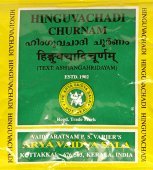Satti: 12 definitions
Introduction:
Satti means something in Hinduism, Sanskrit, Buddhism, Pali, the history of ancient India, Jainism, Prakrit, Hindi, Tamil. If you want to know the exact meaning, history, etymology or English translation of this term then check out the descriptions on this page. Add your comment or reference to a book if you want to contribute to this summary article.
India history and geography
Source: archive.org: Epigraphia Indica Vol. 1 (1892)Satti (सत्ति) is the name of a Brāhman mentioned in the Pallava grant of king Śivaskandavarman. He is als known as Śakti. The Prākrit Pallava king Śivaskandavarman of Kāñcī, who was affiliated to the Brahmanical gotra of the Bhāradvājas, confirmed and enlarged, in the eighth year of his reign, a donation, made formerly by the great king, the lord Bappa (i.e., probably his father), to certain Brahmans (e.g., Satti), who resided at Āpiṭṭi or Āpiṭṭī, and were bhojakas, i.e., probably freeholders of the vilalge Chillarekakoḍuṃka or Chillerekakoḍuṃka.
According to the 4th century Pallava grant, “... and we grant here an immunity (viz.) the garden in Chillarekakoḍuṃka, which was formerly given by the great king, the lord Bappa, a giver of many krors of gold and of one hundred thousand ox-ploughs,—while he made (the gift) a means of the increase of the merit, longevity, power and fame of (his) own family and race —to the Brāhmans, freeholders of Chillarekakoḍuṃka (and) inhabitants of Āpiṭṭi, (viz.) ... to the four brothers Kumāranaṃdi/Kumāranandi (Kumāranandin), Kumārasama (Kumāraśarman), Koṭṭasama (Koṭṭaśarman) and Satti (Śakti) of the Kosika (Kauśika) gotra four shares of the produce ...”
Source: Shodhganga: A translation of Jhaverchand Meghanis non translated folk talesSatti refers to “A woman full of chastity and devotional to husband”.—It is defined in the glossary attached to the study dealing with Gujarat Folk tales composed by Gujarati poet Jhaverchand Meghani (1896-1947)

The history of India traces the identification of countries, villages, towns and other regions of India, as well as mythology, zoology, royal dynasties, rulers, tribes, local festivities and traditions and regional languages. Ancient India enjoyed religious freedom and encourages the path of Dharma, a concept common to Buddhism, Hinduism, and Jainism.
Languages of India and abroad
Pali-English dictionary
Source: BuddhaSasana: Concise Pali-English Dictionarysatti : (f.) 1. ability; power; strength; 2. a spear; a dagger.
Source: Sutta: The Pali Text Society's Pali-English Dictionary1) Satti, 2 (f.) (cp. Vedic śakti, orig. identical with satti1) 1. knife, dagger, sword A. IV, 130; J. II, 153; Vism. 313 (dīgha-daṇḍa° with a long handle); DhA. I, 189; II, 134 (tikhiṇa° a sharp knife). mukha° piercing words J. I, 341.—2. a spear, javelin S. I, 13; A. II, 117; J. I, 150.
2) Satti, 1 (f.) (fr. śak, cp. Vedic śakti) ability, power Dhtp 508 Usually in phrase yathā satti as much as one can do, according to one’s ability Cp I. 106; DhA. I, 399; or yathā sattiṃ D. I, 102, or y. sattiyā DhA. I, 92. (Page 673)

Pali is the language of the Tipiṭaka, which is the sacred canon of Theravāda Buddhism and contains much of the Buddha’s speech. Closeley related to Sanskrit, both languages are used interchangeably between religions.
Sanskrit dictionary
Source: DDSA: The practical Sanskrit-English dictionarySatti (सत्ति).—
1) Sitting down.
2) Beginning.
Derivable forms: sattiḥ (सत्तिः).
Source: Cologne Digital Sanskrit Dictionaries: Cappeller Sanskrit-English DictionarySatti (सत्ति).—[feminine] setting in, beginning.
Source: Cologne Digital Sanskrit Dictionaries: Monier-Williams Sanskrit-English DictionarySatti (सत्ति):—[from sad] f. sitting down, sitting (cf. ni-ṣatti), entrance, beginning, [cf. Lexicographers, esp. such as amarasiṃha, halāyudha, hemacandra, etc.]
[Sanskrit to German]
Sanskrit, also spelled संस्कृतम् (saṃskṛtam), is an ancient language of India commonly seen as the grandmother of the Indo-European language family (even English!). Closely allied with Prakrit and Pali, Sanskrit is more exhaustive in both grammar and terms and has the most extensive collection of literature in the world, greatly surpassing its sister-languages Greek and Latin.
Hindi dictionary
Source: DDSA: A practical Hindi-English dictionarySaṭṭī (सट्टी):—(nf) market-place.
...
Prakrit-English dictionary
Source: DDSA: Paia-sadda-mahannavo; a comprehensive Prakrit Hindi dictionary1) Satti (सत्ति) in the Prakrit language is related to the Sanskrit word: Sakti.
2) Satti (सत्ति) also relates to the Sanskrit word: Sapti.
Prakrit is an ancient language closely associated with both Pali and Sanskrit. Jain literature is often composed in this language or sub-dialects, such as the Agamas and their commentaries which are written in Ardhamagadhi and Maharashtri Prakrit. The earliest extant texts can be dated to as early as the 4th century BCE although core portions might be older.
Kannada-English dictionary
Source: Alar: Kannada-English corpusSaṭṭi (ಸಟ್ಟಿ):—
1) [noun] a wide, shallow earthenware.
2) [noun] a round earthenware with a constricted neck and a small mouth; a pot.
Kannada is a Dravidian language (as opposed to the Indo-European language family) mainly spoken in the southwestern region of India.
Tamil dictionary
Source: DDSA: University of Madras: Tamil LexiconSatti (ஸத்தி) noun < jagdhi. Feast. See சத்தி⁵. [sathi⁵.]
Tamil is an ancient language of India from the Dravidian family spoken by roughly 250 million people mainly in southern India and Sri Lanka.
See also (Relevant definitions)
Starts with (+28): Cat-iracavarkkam, Catti, Catti-purtticanti, Catticattaranai, Catticcoru, Catticuranti, Catticurantu, Cattikkaranai, Cattini, Cattipanai, Cattippul, Cattittalai, Cattittalaiyan, Cattittoni, Cattivattu, Cattiviratam, Cattiyappam, Cattiyattu, Cattiyayani, Cattiyetu.
Ends with (+33): Acatti, Akkiniccatti, Anumitiparamarshayoh karyakaranabhavaghatakapratmasatti, Arikkancatti, Arukkancatti, Asatti, Atukkuccatti, Bassatti, Carukuccatti, Caruvaccatti, Catti, Ciniccatti, Corruccatti, Dharmitavacchedakapratyasatti, Dharmitavachedakapratyasatti, Dharmitavachedakatapratyasatti, Isadesatti, Itukkancatti, Kaisatti, Kanappuccatti.
Full-text (+163): Sathi, Upasatti, Kumpitucatti, Sathi-charanai, Shati, Catipay, Shakti, Sapti, Catticuranti, Asatti, Utsatti, Paniyaraccatti, Samgi-sathi, Cattippu, Catikolai, Cayilantam, Karcatti, Sattilanghana, Vara-ottucatti, Cattikar.
Relevant text
Search found 11 books and stories containing Satti, Saṭṭī, Saṭṭi, Sathi; (plurals include: Sattis, Saṭṭīs, Saṭṭis, Sathis). You can also click to the full overview containing English textual excerpts. Below are direct links for the most relevant articles:
Rig Veda (translation and commentary) (by H. H. Wilson)
Rig Veda 4.21.9 < [Sukta 21]
Later Chola Temples (by S. R. Balasubrahmanyam)
Temples in Tirusattimuttam (Rajarajapuram) < [Chapter X - Temples of Rajadhjraja II’s Time]
Temples in Pattisvaram (Palayarai-Malapadi) < [Chapter X - Temples of Rajadhjraja II’s Time]
The Religion and Philosophy of Tevaram (Thevaram) (by M. A. Dorai Rangaswamy)
Nayanar 46: Satti (Sakti) < [Volume 4.1.1 - A comparative study of the Shaivite saints the Thiruthondathogai]
Chapter 3.2 - Dakshari (the legend of Daksha’s sacrifice) < [Volume 2 - Nampi Arurar and Mythology]
Sivaprakasam (Study in Bondage and Liberation) (by N. Veerappan)
Consequential bondages < [Chapter 2 - Bondage]
Three forms of deeds < [Chapter 2 - Bondage]
Dhyana in the Buddhist Literature (by Truong Thi Thuy La)
2.2: (2a) Meaning of the term “Vipassanā” < [Chapter 2 - The Dhyāna as depicted in Hinayāna Literature]
Folk Tales of Gujarat (and Jhaverchand Meghani) (by Vandana P. Soni)
Chapter 32 - Vikram and Vidhata < [Part 4 - Dadajee Ni Vato]
Chapter 7b - Kanara ne Reesamne < [Part 2 - Sorathi Baharvatiya]
Related products
(+18 more products available)





